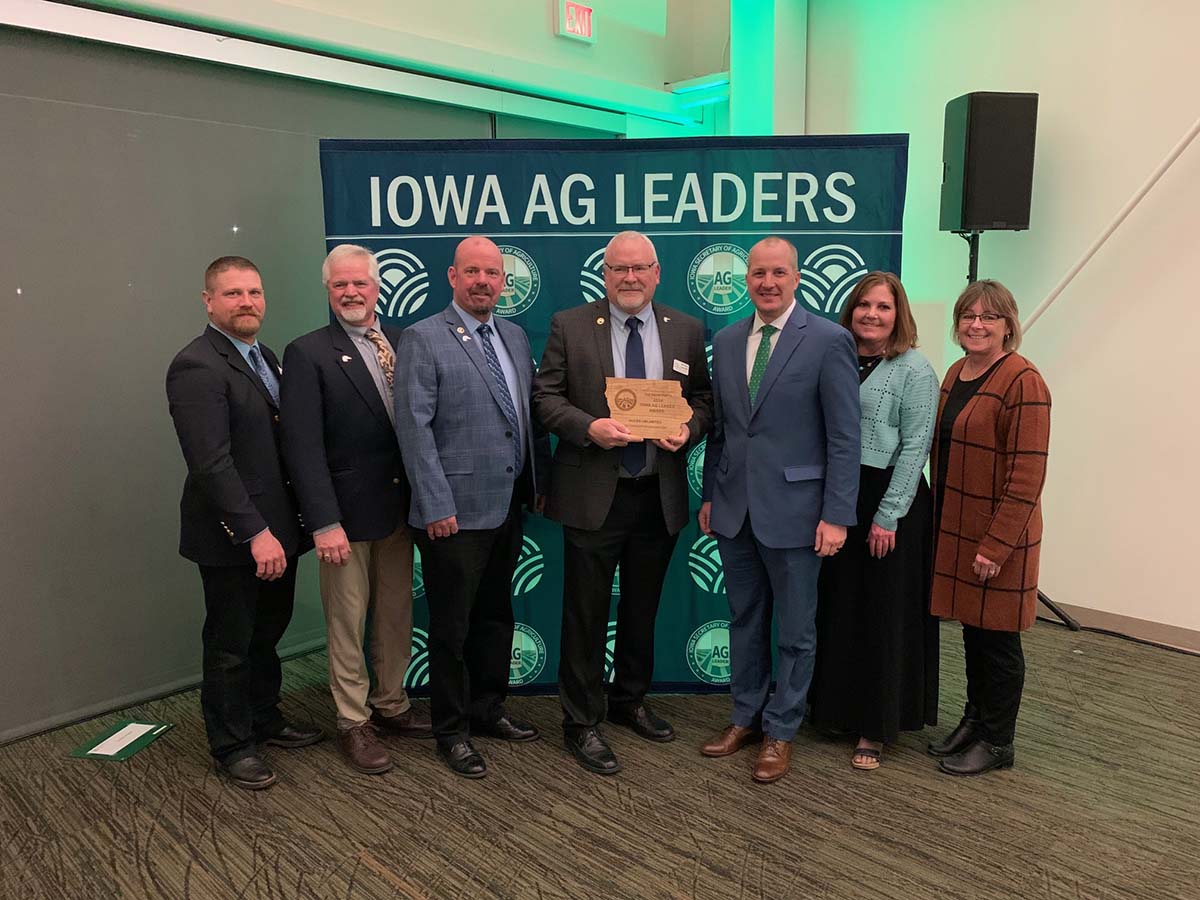Iowa Names DU Leader in Agricultural Conservation
Sec. of Agriculture Mike Naig made the announcement at the 12th annual Iowa Ag Leaders dinner
Sec. of Agriculture Mike Naig made the announcement at the 12th annual Iowa Ag Leaders dinner

From left to right: Heath Stolee, private landowner; DU Regional Vice President Brian Garrels; DU State Chair Chris Fox; DU biologist Mike Shannon, Iowa Sec. of Ag. Mike Naig; DU volunteer Margo Fox and DU Senior Flyway Vice President Tammi Kircher.
Iowa Secretary of Agriculture Mike Naig presented Ducks Unlimited (DU) with the state’s Ag Leaders Award for its contributions to Iowa Agriculture. DU received the Leadership in Conservation designation at the 12th annual Iowa Ag Leaders dinner. Naig also honored the Iowa Barn Foundation for Leadership in Community and Plantpeddler (an Iowa plant supplier) for Leadership in Agriculture Education.
“Hundreds of Iowans from across the state gather every year for the Iowa Ag Leaders dinner to recognize outstanding organizations and inspiring individuals who are making a tremendous impact,” said Secretary Naig. “This year’s awardees, the Iowa Barn Foundation, Ducks Unlimited and Plantpeddler, have all made significant and positive impacts on our state. They are deserving of recognition for their leadership in conservation, agriculture education and community betterment.”
Iowa’s Department of Agriculture and Land Stewardship (IDALS) has been working with soil and water conservation districts to address water quality protection needs as part of the state’s Nutrient Reduction Strategy since 2013. The goal is to protect water quality in Iowa by targeting and preventing off-site sediment, nutrient loads and livestock waste pollution.

Heath Stolee's Iowa farm.
Since 2020, DU and IDALS have restored native wetlands in Iowa's Prairie Pothole Region (PPR), which benefits wildlife and state residents. Iowa has undertaken an aggressive initiative to reduce 45% of the nitrogen that enters its waterways. To accomplish this goal, the state hopes to construct thousands of wetlands.
“You are doing something for yourself, the habitat, but you are also helping your neighbor and reaching nutrient reduction goals,” said landowner Heath Stolee, who restored a wetland on his farm with the help of DU.
Last year, the two organizations agreed to a five-year, $7.1 million contract. The focus of this program is on wetland habitat. It will also include the implementation of saturated buffers, bioreactors (wood chip pits that filter water from tile runoff), multi-purpose oxbows and other soil health practices. Currently, 18 projects are in development.
“Originally DU was just sharing the cost to build these wetlands,” said DU Regional Biologist Mike Shannon. “But there was a bottleneck from conception to implementation, and that is where DU comes in. We have the engineers and GIS analysts who are mapping and identifying the appropriate sites for these wetlands and then our outreach biologists sign up landowners for the appropriate programs.”
Ducks Unlimited uses cookies to enhance your browsing experience, optimize site functionality, analyze traffic, and deliver personalized advertising through third parties. By continuing to use this site, you agree to our use of cookies. View Privacy Policy